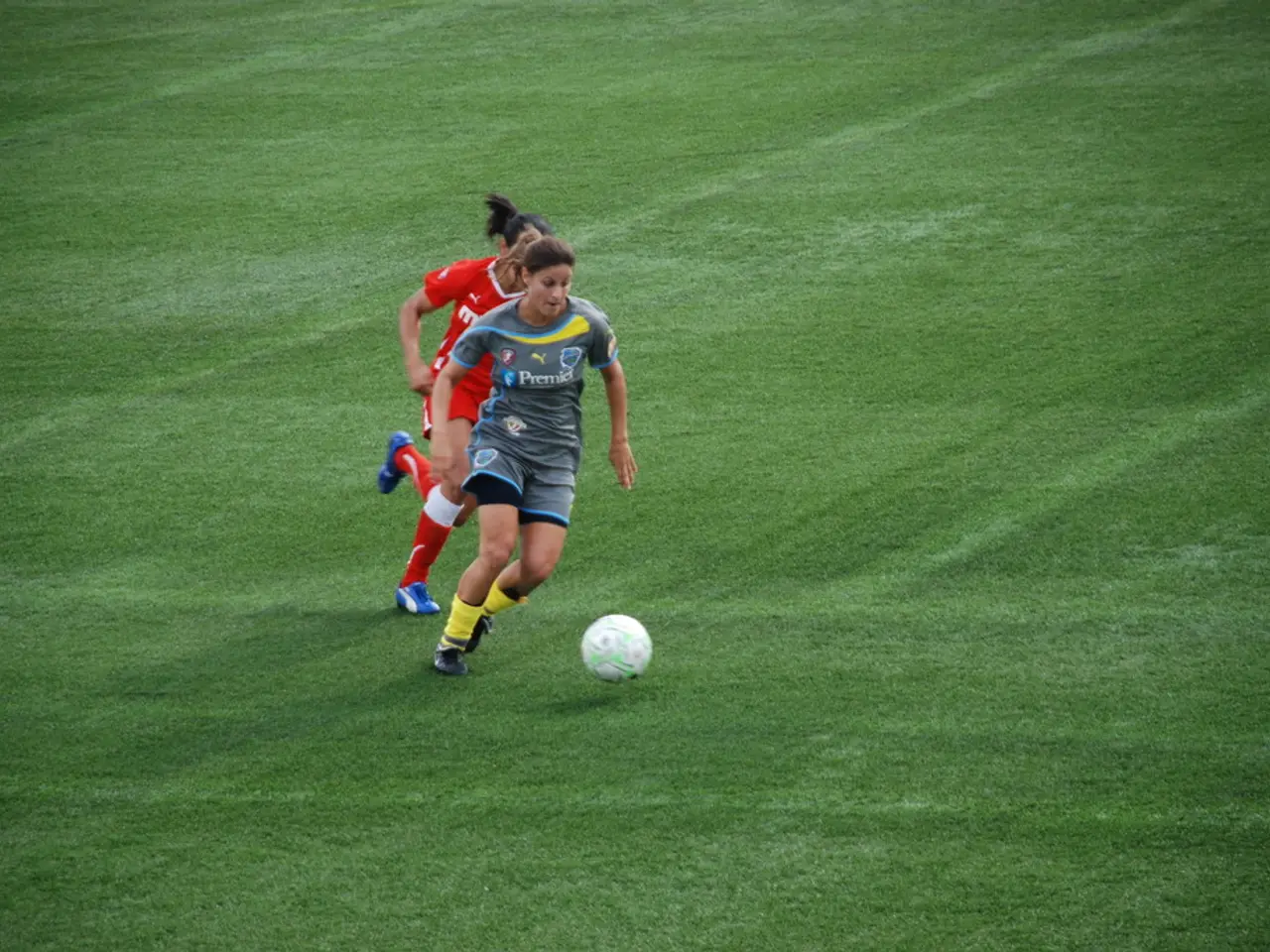Empowerment in Motion: Female Athletes Taking Control Through Sports Participation
=======================================================================
Encouraging more women to participate in sports is essential for promoting health, mental well-being, and self-esteem. A variety of strategies have been proposed to overcome challenges such as lack of representation, equal opportunities, and financial support.
One effective approach is systematic programming and long-term partnerships, as demonstrated by Voice in Sport's partnership with the WNBA. Using a six-step IMPACT process, this collaboration engaged over 50,000 female athletes and created sustainable support systems, particularly targeting girls aged 12-17 who are at high risk of dropping out.
Addressing safety and gender-based violence is another crucial aspect, particularly in women's football, where over 70% of first-division players have experienced harassment. Public policies fostering safety protect athletes and encourage participation, having ripple effects on other sports.
Increasing opportunities and representation in major events is another key strategy. The International Olympic Committee has promoted gender equality by increasing women's events, introducing mixed-gender competitions, and balancing medal events’ scheduling to boost female athlete visibility and participation over the past 25 years.
Mentorship, coach training, and inclusive communities play a significant role in increasing women in coaching and leadership roles. Providing flexible training opportunities, mentorship programs, and communities of practice helps expand the talent pool, improves innovation, and creates positive, inclusive environments that encourage participation.
Psychological skills training and empowerment workshops help women athletes build confidence, develop skills, and lead effectively. Financial investment and infrastructure support sustained participation and professionalization, with broader social benefits like better health, education, and employment outcomes.
However, cultural norms in certain parts of the world prevent women from participating in sports. Challenging gender stereotypes, promoting inclusivity and diversity, and providing opportunities for women from all backgrounds and abilities are essential to overcome these barriers.
Examples of women who have achieved greatness in sports despite facing significant challenges include Mary Kom, Serena Williams, Simone Biles, Manon Rheaume, Archana Devi, and Falak Naz. Advocates for gender equality in sports include Billie Jean King, Lord Sebastian Coe, Nawal El Moutawakel, and the Board of Control for Cricket in India (BCCI), who announced in 2022 that they will pay equal match fees for men and women cricketers, providing financial security for women cricketers.
Fear of sexual harassment and abuse is a deterrent for women in sports. Society must recognise the importance of providing safe and violence-free environments for all athletes. Equal opportunities for men and women athletes, including access to facilities, equipment, pay, and sponsorships, are also crucial to increasing women's participation in sports.
In conclusion, lasting change depends on holistic, integrated efforts involving policy, culture change, mentorship, safety, and investment rather than one-off initiatives or events. It is time to challenge the patriarchy mindset and belief that women are unfit for sports, and to provide equal opportunities for all.
References:
[1] Voice in Sport. (n.d.). IMPACT. Retrieved from https://www.voiceinsport.org/impact
[2] Women's Sports Foundation. (2021). The State of Women in Sports 2021. Retrieved from https://www.womenssportsfoundation.org/research/state-of-women-in-sports-2021
[3] International Olympic Committee. (2021). Gender Equality. Retrieved from https://www.olympic.org/gender-equality
[4] Sport England. (2021). Tackling the gender gap in sport: A review of the evidence. Retrieved from https://www.sportengland.org/our-work/research/tackling-the-gender-gap-in-sport-a-review-of-the-evidence
- Pursuing science and education in the field of sports and health-and-wellness can lead to effective strategies for fostering mental health and personal growth, as well as promoting fitness and exercise among women.
- Engaging in continuous learning and self-development is crucial for coaches and leaders in the realm of women's health, sports, and fitness-and-exercise, as it helps create inclusive communities, improve training opportunities, and boost innovation.
- By focusing on sports analysis and education, we can better understand and address challenges like gender-based violence, insufficient financial support, and lack of representation in women's sports, ultimately encouraging participation and professional growth.
- As advocates for equal opportunities in sports, one can nurture mental health and self-esteem in women, thereby promoting health and well-being, in parallel with their active participation in fitness-and-exercise, education-and-self-development, and sports.




